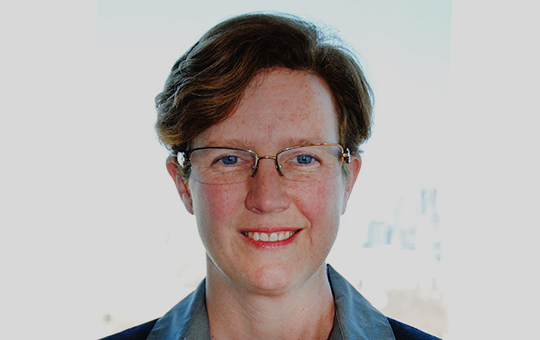‘Young people deserve optimal outcomes’: A leader in the field of Integrated Youth Services (IYS) is using an evidence-based approach to improve the lives of Canadian youth

If you ask Dr. Jo Henderson why they've spent decades championing causes for children, the answer is simple.
"My why is about justice. I think we must have systems in place to better support children, youth and their families," says Dr. Henderson, Child Psychologist, Professor, Executive Director of Youth Wellness Hubs Ontario, Director of the Margaret and Wallace McCain Centre for Child, Youth & Family Mental Health, and Senior Scientist at the Centre for Addiction and Mental Health (CAMH).
"I can go out and get my cell phone fixed, my car fixed and get my kitchen renovated but I'm unable to access services for a living human being who is struggling."
Dr. Henderson's passion stems from their own childhood, dreaming of one day helping kids. "When I first started university, I thought I would be a teacher and support kids in a very narrow way. But then, when I was fortunate enough to do really well in school, I had some very key people along the way who encouraged me to think bigger."
Dr. Henderson started at CAMH in 1994 as a student volunteer and has never left. Early in their career they began to see that research around issues like youth mental health and substance use often didn’t include perspectives of the people they were trying to support.
"How can we possibly produce meaningful and useful research if we're not actually connecting with service providers, clinicians, youth and their families from the beginning," wondered Dr. Henderson.
To ensure those voices were being heard, Dr. Henderson turned their focus to Canada's Integrated Youth Services (IYS). IYS is a service delivery model that is a "one-stop shop" – or hub – for Canadian youth aged 12 to 25. It brings together, under one roof, services and agencies specializing in areas such as mental health, substance use and sexual health. Dr. Henderson is a leader in the IYS field. They've spent years working closely with youth, families, clinicians and service providers to develop IYS hubs across the country that are inclusive and designed for youth by youth. Dr. Henderson now wants to take that one step further, by using innovative research techniques and data collection in hopes of making youth treatment in Canada a world-class model.
"Right now, thousands of individual organizations scattered across the country are making decisions about their services and needs of youth in isolation and often without data at all," explains Dr. Henderson. "Imagine the impact we can have if we develop something collaboratively? When we can use data to confirm youth in different parts of the country are experiencing similar problems, our IYS hubs in different towns, cities and provinces can then partner together and share that information to understand what treatments work effectively. That's when real change happens."
Dr. Henderson and their team have received funding through the Canadian Institutes of Health Research (CIHR) to investigate the impact embedded data measurement can have on developing pan-Canadian IYS standards. Through their project, Strengthening YWHO's (Youth Wellness Hubs Ontario) Integrated Service Delivery and Measurement Based Care models: Building standards for a youth-focused learning health system, Dr. Henderson and their team will examine data shared between IYS hubs in Ontario. They then explain those results to stakeholders like youth and their families, and work together to develop meaningful treatments and interventions.
"People who are experiencing mental health issues deserve to know if the treatments are working or not," explains Dr. Henderson. "When we examine that data, it helps us to understand needs, strengths and gaps. Based on that we can then take action."
Dr. Henderson says this kind of embedded measurement system will be a game changer in proactive youth treatment, offer policy makers access to real-time data to better guide their funding decisions, and empower youth to make informed health decisions in Ontario and beyond.
The data will help them answer questions like: Who are the youth in each community? What does that look like culturally, gender wise and from an intersectional perspective? How are the services designed in response to that? The team can then determine the unmet needs.
"As soon as young people feel like they are starting to struggle or people in their lives identify they are struggling, we should be providing support. There should be no delay," adds Dr. Henderson. "We want to create a space in the community that is for youth by youth. A space where they have a sense of belonging, a sense of hope, develop skills and enhance their well-being. The return on investment is phenomenal."
- Date modified: